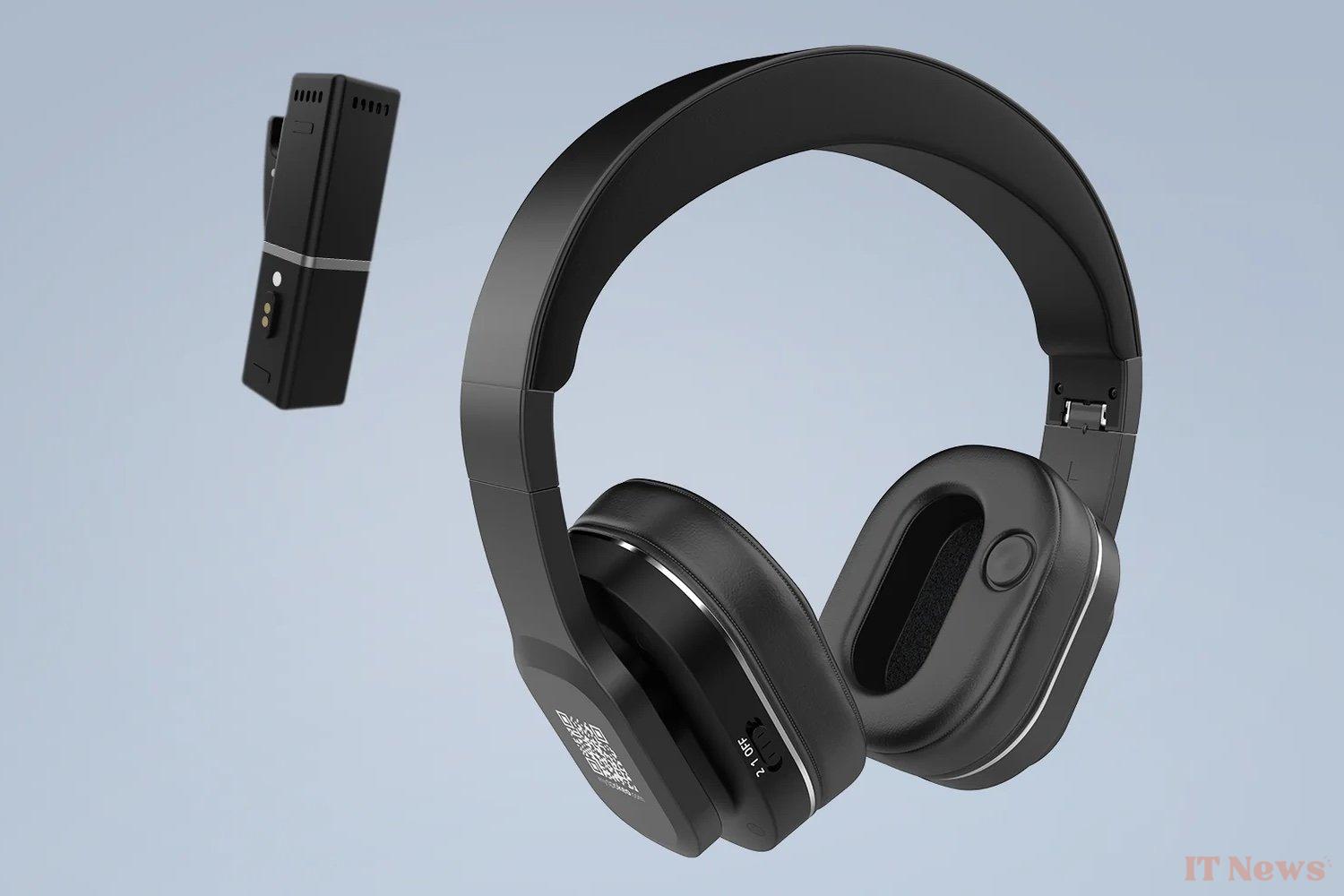Of the 250 inventions competing this year at the Lépine Competition, it was a classic-looking black headset that stood out. But beneath its headphone-like appearance lies a simple and clever idea: to allow people with hearing loss to better follow a conversation, without using a hearing aid.
A headset that does much more than just listen to music
Behind Spokeo are three inventors: Raphaël Zakine (optician), Jonathan Goldminc (hearing aid specialist), and Michael Uzzan (also an optician). Their observation is that many people with hearing loss do not want to or cannot wear hearing aids. Spokeo is therefore an alternative solution, halfway between headphones and hearing aids.
Its operation is based on a technology called "bi-conduction": sound is transmitted both through the air (like a classic headset) and through the bones (thanks to slight vibrations). The idea is that even if the ear canal is blocked, the sound information still reaches the inner ear.
A small lavalier microphone picks up the speaker's voice and reduces background noise. As a result, the person wearing the headset can follow a conversation without having to repeat themselves or raise their voice. Practical at home, useful in nursing homes, but also in medical practices.
The secret of Spokeo lies in the combination of two technical components: Smart Mic, the directional lavalier microphone that isolates the useful voice, and Sound Boost, a high-definition amplification system with two volume levels. Tested on over 5,000 users, this duo achieves a comprehension rate close to 95%. The headset is also covered with hypoallergenic silicone pads to prevent any discomfort during bone conduction. The whole thing is compact, lightweight, and ready to use at any time.
Spokeo is not a medical device, and that's its strength. No need for an appointment with an ENT, no complicated settings, no batteries to change. Simply turn it on and speak into the microphone. The downside is that it is not covered by social security.
The headset charges via USB, connects via Bluetooth to listen to TV or a podcast, and retails for €598. You can already order it online. The creators are primarily targeting caregivers, health professionals, and caregivers. An example cited by the inventors: ophthalmologists, who need to be heard clearly during cataract surgery.
The Lépine competition jury was clearly won over by this simple, direct, and already operational approach. And Spokeo is not alone: other practical inventions have been recognized, such as an anti-electrocution socket or a box for sharing your mobile connection.



0 Comments